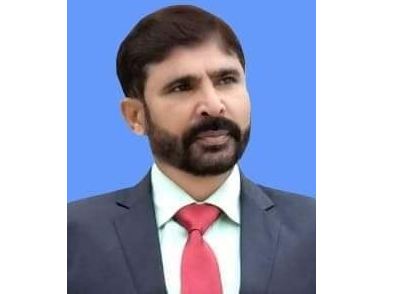Dr. Muhammad Akram Zaheer
An Iraqi military delegation is going to visit Washington soon, and there is a lot of anticipation and tension in Iraq about this visit. The focus is on the presence of American troops in Iraq, which has been a hot topic among Iraq’s various political groups. Iraqi Shi’a Islamist hardliners are especially eager to speed up the withdrawal of U.S. forces from their country. Since the 2003 invasion that removed Saddam Hussein, the presence of American troops in Iraq has been controversial. At first, these troops were seen as liberators, but over time, many Iraqis, especially Shi’a Islamist groups, have come to see them as occupiers. These groups believe that foreign troops undermine Iraq’s sovereignty and hinder its control over national security and internal affairs. These hardliners, who often have strong connections to Iran, view the American military presence as a way for the U.S. to exert influence in the region, which counters Iran’s influence in Iraq. Their demand for a quick withdrawal aligns with their opposition to U.S. policies in the Middle East. The killing of Iranian General QassemSoleimani by a U.S. drone strike in Baghdad in January 2020 intensified these feelings, leading to louder calls for the U.S. to leave. For the upcoming visit to Washington, these hardliners want the Iraqi delegation to take a firm stand and insist on a clear and quick timeline for the withdrawal of American troops. This position reflects their anti-American views and responds to growing frustration among Iraqis over the foreign military presence, which they blame for ongoing instability and violence. However, the Iraqi delegation faces a difficult situation. The United States has been an important ally, providing military support, training, and financial aid essential for Iraq’s fight against ISIS and other extremist groups. A sudden and unplanned withdrawal could create a power vacuum, potentially leading to more insurgent activities and further destabilization. The delegation needs to carefully balance these issues. While addressing the hardliners’ demands and the broader Iraqi desire for sovereignty, they must also consider the practical need to maintain a strategic partnership with the United States. This partnership is crucial not just for military support but also for economic and political stability. Moreover, the visit will be closely watched by other countries. Iran will be particularly interested in the outcomes due to its interests in Iraq. Other regional allies and adversaries will also be paying attention to how the U.S.-Iraq relationship develops, as it affects regional security dynamics.
In July, the Iraqi government is actively trying to maintain good relations with both the United States and Iran. On July 17, an Iranian-backed militia launched a drone attack on an Iraqi airbase where some of the 2,500 US troops in the country are stationed. There were no casualties, but this attack has raised concerns that the informal cease-fire arranged by Prime Minister Mohammed Shia al-Sudani between the Iranian-backed militias and the Americans may be falling apart. The militias and their allies in the Iraqi parliament believe that the US is delaying negotiations over the withdrawal of its forces from Iraq. Sudani has stated that the American-backed multinational coalition should leave, but he also wants to create a bilateral military support program with the US and other countries.
On July 8, a Pentagon delegation met with Iraqi officials in Baghdad to discuss the future of American military relations with Iraq, but there were no announcements about progress or a withdrawal timetable. Under pressure from hardline Shi’a Islamists, a Shi’a politician said on Iraqi TV that a withdrawal schedule announcement would come within weeks. However, Washington has not mentioned any timetable, leaving Sudani without political support. An Iraqi military delegation is expected to visit Washington soon, and Shi’a Islamist hardliners want Iraq to push for a quicker withdrawal of American troops.
Meanwhile, on July 13, Iraqi Foreign Minister Fuad Hussein met with US Treasury Under Secretary for Terrorism and Intelligence Brian Nelson in Washington. He urged the US to ease sanctions that have blocked about 30 Iraqi commercial banks from accessing dollars and the international banking system. Hussein claimed that the Iraqi banking sector has made reforms to address American concerns about money laundering benefiting Iran and its proxies. Although the Treasury Department appreciated Iraq’s commitment to reform, it did not indicate any easing of the sanctions. Hussein also met with State Department Under Secretary for Political Affairs John Bass to seek assistance regarding Iranian funds frozen in Iraq, but the State Department also gave no public sign of flexibility.
In a positive development for Baghdad, the State Department announced last week that it had granted another four-month waiver to the Iraqi government, allowing it to buy Iranian electricity without facing American sanctions. The State Department spokesperson said that Baghdad was making steady progress toward finding alternative sources to replace Iranian electricity imports. Given the extreme heat in Iraq this summer, improving the electricity supply is more crucial than ever for the Iraqi people.

















